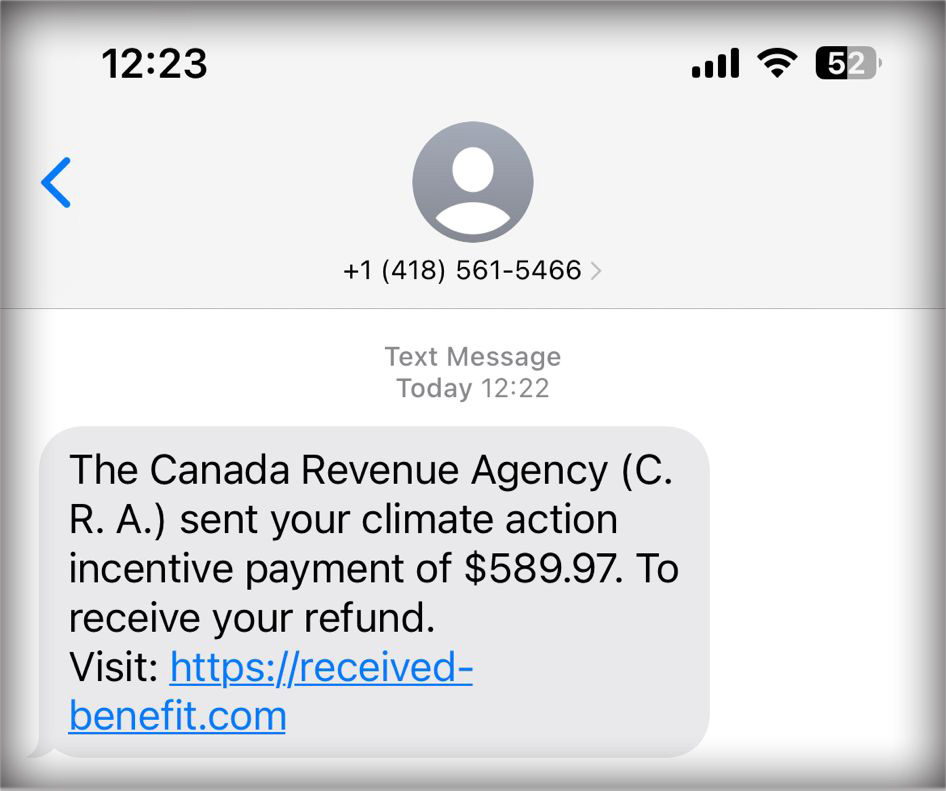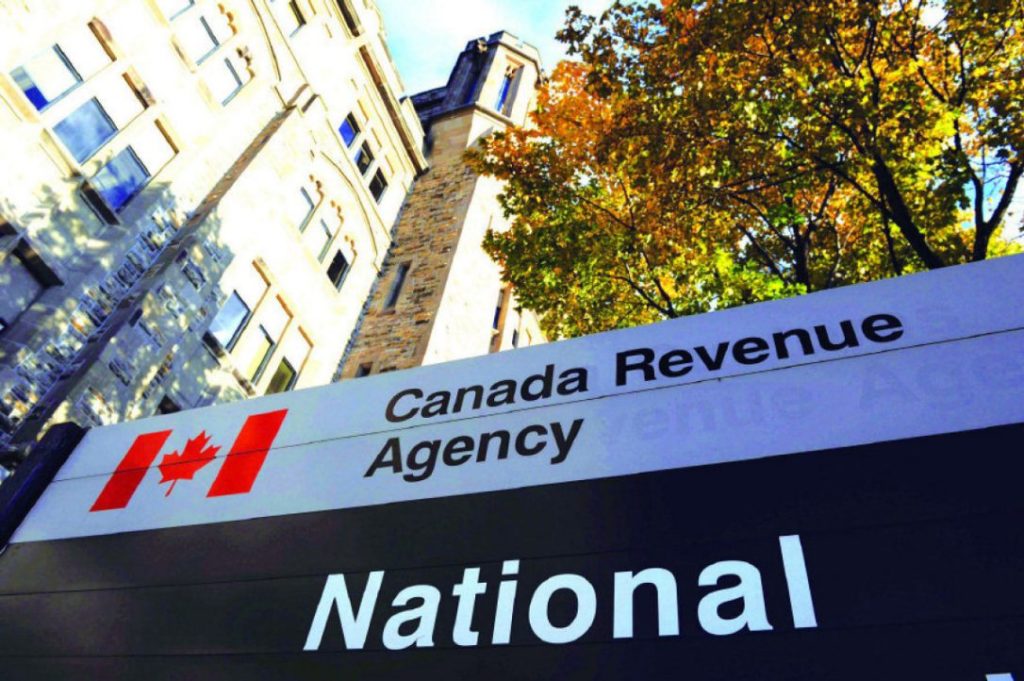Climate Action Incentive Scam: How It Works
A suspicious text message perpetrating the Climate Action Incentive scam has been circulating over the past week in Canada. Exploiting the legitimate Climate Action Incentive offered by the Canada Revenue Agency (CRA), scammers attempt to deceive people into divulging personal information or making fraudulent transactions.
This article aims to raise awareness about the scam, provide tips for avoiding such schemes, highlight similar fraud tactics, and explain how the genuine Climate Action Incentive can be redeemed. How does the scam work?
Scam Detectors Most Trusted Websites in Online Security
- Guard.io (100): Surf the web safely. Clean up your browser, remove maliscious extensions and check for privacy violations.
- Incogni.com (100): Delete your personal data from the internet and protect against scams and identity theft.
- ExpressVPN (100) Stay secure and anonymous online - Best VPN Out There
The Climate Action Incentive scam preys on individuals' desire to benefit from the legitimate financial support provided by the CRA. Victims receive fraudulent text messages from suspicious numbers, claiming they are eligible for the Climate Action Incentive of $589.97.
The message directs recipients to a deceptive website, often under the domain name www.received-benefit.com, where they are prompted to enter personal information or make a deposit. Here is the content of the text message – including the grammar mistakes:
“The Canada Revenue Agency (CRA) sent your climate action incentive payment of $589.97. To receive your refund. Visit https://received-benefit.com“.

The phone number used was 1 (418) 561-5466 but of course, in your case, it could be any.
Climate Action Incentive Scam: How To Avoid
To protect yourself and your hard-earned money from falling into the hands of scammers, it is crucial to be vigilant and follow these essential five fraud prevention tips:
- Look at the grammar mistakes. Canada Revenue Agency never uses the acronym with dots in between letters (CRA). The phrases are not correctly linked – see the period between “To receive your refund” and “Visit”. Last but not least, the Canadian government uses domain names ending with the extension “.ca” not “.com”.
- Be skeptical of unsolicited messages. Treat any unsolicited communication with suspicion, especially if it promises financial benefits. Genuine government agencies like the CRA typically do not initiate contact via text messages, emails, or calls for sensitive matters.
- Verify the source. Check the legitimacy of the message sender. Do not trust suspicious numbers or unfamiliar websites. If in doubt, independently search for the official contact information of the organization in question and reach out to them directly to confirm the authenticity of the communication.
- Exercise caution with links. Avoid clicking on links provided in unsolicited messages. Hover over the link to check if it matches the stated website or redirects to an unknown or suspicious address. Official government websites usually end with .gc.ca or .ca.
- Protect your personal information. Never share sensitive personal details such as your Social Insurance Number (SIN), banking information, or passwords through text messages or unsecured websites. Legitimate organizations will not request such information via these channels.
Similar Fraud Schemes to Watch Out For
Scammers often adapt their tactics to target different government programs or financial incentives. Here are some similar fraud schemes to be aware of:
- COVID-19 Relief Scams: Fraudsters exploit the ongoing pandemic by posing as government officials or agencies offering financial assistance related to COVID-19 relief programs. Be cautious of any unsolicited messages or calls regarding pandemic-related benefits.
- Tax Refund Scams: Scammers impersonate the CRA, claiming to offer tax refunds or reductions. They trick victims into sharing personal and financial information, which they later use for identity theft or fraudulent transactions.
- Employment Insurance (EI) Scams: Fraudsters may contact individuals posing as representatives from Service Canada, promising increased or expedited EI benefits. They exploit the urgency and financial vulnerability of job seekers.
Redeeming the Genuine Climate Action Incentive
It is important to note that the legitimate Climate Action Incentive is an initiative by the Canadian government to reduce greenhouse gas emissions and support individuals and families in addressing climate change.
If you qualify for the Climate Action Incentive, you will receive the transfers straight into your Canadian bank account.
How To Report a Scammer
If you receive a fraudulent message about the Climate Action Incentive scam or any other scheme, report it to the Canadian Anti-Fraud Centre at 1-888-495-8501 or online at www.antifraudcentre.ca. This helps raise awareness and prevent others from falling victim to the same scheme.
Let your close family and online friends know about the Climate Action Incentive scam. Feel free to share this page if it was helpful. Meanwhile, you can also report scammers and any other suspicious activity to the Federal Trade Commission (FTC) using the portal below:
How To Protect Yourself More
If you want to be amongst the first to receive notifications about the most notorious scams every week, subscribe to our Scam Detector newsletter. You will receive periodic emails from us with insightful tips. That will include how to prevent fraud and information about the newest tools you can use to fight crime.
Meanwhile, feel free to educate yourself with some other fraud-related articles. They are listed under this paragraph, so that you know more about online security. Last but not least, if you have any bad experiences, make sure to use the comments section below to expose other scammers.
Verify a website below
Are you just about to make a purchase online? See if the website is legit with our validator:
vldtr®


TOP 4 MUST-WATCH FRAUD PREVENTION VIDEOS
1. Top 5 Amazon Scams in 2024 2. Top 5 PayPal Scams in 2024 3. How To Spot a Scam Email in 2024
- Latest Posts by Selma Hrynchuk
-
How To Stop Robocalls
- -
Taking Control of Your Data Privacy: Protecting Yourself in 2024
- -
The Urgency of Removing Personal Information from the Internet
- All Posts













